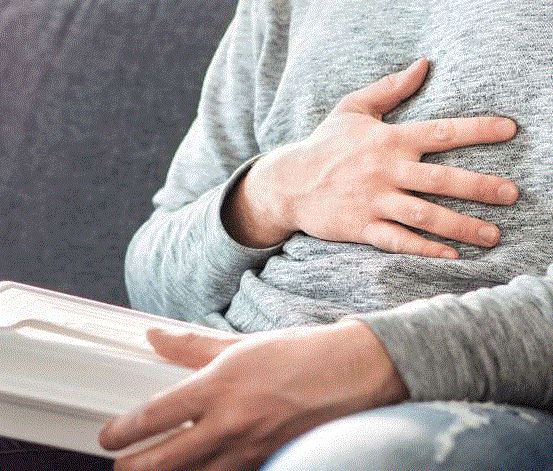Key Takeaways
- Anxiety about recovering from addiction generally comes from making big changes to your mind and emotions, which can make it feel worse than physical withdrawal.
- Withdrawal symptoms usually go away after a short time, but addiction recovery anxiety might last for months or even years.
- A good addiction treatment program works on both the physical and emotional aspects of recovery, such as alcohol addiction.
- Post-Acute Withdrawal Syndrome (PAWS) is a long-term anxiety that happens after withdrawal. It needs emotional support and ways to deal with it.
- Building resilience, self-awareness, and methods to deal with triggers are all parts of recovery that help people stay sober for a long time.
Introduction
Addiction recovery anxiety is a strong force that can stop even the most diligent efforts to become better. It’s not just a feeling of unease that won’t go away; it can feel like you’re going into an unknown land without a map. Withdrawal can have a distinct start and conclusion, but this worry goes deep into the psyche, peeling back layers of fear, doubt, and emotional weakness.
People may feel very anxious about living without drugs in the early stages of recovery. It’s not just “missing the drug” that makes them nervous; it’s also the confusion of reconstructing their identity, coping abilities, and relationships. The process of self-discovery can cause a lot of inner turmoil, making the worry of recovering from addiction feel worse than the physical discomfort of withdrawal.
The Mental and Emotional Burden of Recovery
1. The End of Withdrawal Means the Start of Anxiety
Physical withdrawal from drugs, like alcohol addiction, usually goes away in a few days to a week. According to clinical recommendations, acute symptoms such as tremors, nausea, and sleeplessness typically subside over time. But a lot of people feel empty emotionally after detox is over. Without the chemical buffers, unresolved trauma, mood disorders, and worry about the future come to the forefront.
2. Learning About Post-Acute Withdrawal Syndrome (PAWS)
Many people who have PAWS—long-lasting emotional and cognitive symptoms like anxiety, mood swings, and sleep problems that range from six months to two years—have them long after their first withdrawal symptoms go away. This makes recovery anxiety more sneaky and long-lasting than the physical pain of detox.
3. Getting by Without Help
When someone is addicted, drugs and alcohol are unhealthy ways to deal with stress, trauma, or mental health problems that are already there. When you stop taking them away, the coping toolkit is suddenly empty. Being open about your problems can make your anxiety worse, especially when you’re dealing with everyday stressors like job, social situations, or problematic relationships.
4. The Fear of Going Back
Even after months of recovery, the fear of relapsing can be quite strong. What if I can’t stay sober? What if I fail? This anticipatory anxiousness never goes away and is quite tiring. It produces a mental cycle that can be harder to overcome than actual cravings.
Why Anxiety Is Stronger Than Withdrawal?
Pain in the Body vs. Pain in the Mind
Physical withdrawal has clear highs and lows in symptoms, such as shaking, sweating, and insomnia, which are commonly treated with medical supervision and medicine. After the detox, the body gets back to normal. But psychological anguish, like crushing anxiety and emotional instability, doesn’t have a clear endpoint and might come back out of nowhere.
Changes in Duration
Withdrawal might last anywhere from a few days to a few weeks. On the other hand, concern about recovery might persist for months or even years, gradually decreasing but never completely disappearing. It feels more burdensome because it lasts so long.
Certainty vs. Uncertainty
There is a typical acute phase with detox: you go through it, and then you heal. But addiction recovery anxiety thrives on uncertainty. Will I lose my job? Can I deal with social pressure while sober? This fear of the unknown is worse on the mind than physical symptoms that are easy to predict.
Support That Doesn’t Have Enough Resources
Even though medical detox is well-known and encouraged, mental health help during recovery is not always available. Addiction treatment, counseling, and peer groups are all very helpful, but they aren’t always available or culturally important, so many people have to deal with their anxiety alone.
How to Deal with Recovery Anxiety in Treatment?
1. A Whole-Person Approach to Treating Addiction
Medication-assisted therapy (for withdrawal and cravings) and emotional support, including as counseling, support groups, and peer-led recovery supports, are both important parts of effective addiction treatment programs.
2. Teaching People About Psychology and Helping Them Build Skills
Clients learn how to deal with PAWS symptoms, including anxiety, and how to deal with them by using mindfulness, relaxation techniques, disciplined routines, and gradually exposing themselves to triggers.
3. Help from Family and Friends
Family, friends, and mentors who can offer emotional support are extremely important. SAMHSA states that involving the family in recovery increases the likelihood of success.
4. Keeping an Eye on Medical Conditions That Happen at the Same Time
A lot of people in recovery have both anxiety and mood issues at the same time. Correct diagnosis and treatment, which may include drugs for anxiety and depression, can lower the risk of relapse and make recovery less stressful.
Conclusion
Recovery is more than just detox. It’s an emotional journey full of change, uncertainty, and vulnerability. Addiction recovery anxiety can be worse than the physical pain of withdrawal because it brings up changes in identity, unresolved trauma, and a future full of fear. Its propensity to last, its unpredictability, and the fact that there is no quick relief make it especially hard.
But you don’t have to deal with recovery anxiety on your own. With full addiction treatment that addresses physiological, psychological, and social aspects—especially in cases of alcohol addiction—lasting recovery is achievable with an addiction recovery program. Building coping skills, relying on supportive networks, and staying involved in aftercare are all essential for maintaining long-term health and resilience.
Are you ready to get real help? A Las Vegas rehab can help you recover from addiction and anxiety. Please call Virtue Recovery Las Vegas at Tel: 725-777-5685 right away for professional, caring treatment.
FAQs
1. What is recovery anxiety, exactly?
Anxiety that doesn’t go away, and is typically very strong, after detox is over. It shows changes in your mental and emotional state, like PAWS, stress, trauma, and reconstructing your identity.
2. How long does this worry last?
It can last anywhere from a few months to a couple of years, though. The symptoms of PAWS may stay the same or change during this time.
3. Can medicine help with anxiety about getting better?
Yes, but only as part of a larger therapy strategy. After detox, anxiety medicines, antidepressants, or medication-assisted therapy can help keep your emotions stable.
4. What is the difference between recovery anxiety and withdrawal anxiety?
Withdrawal anxiety is an element of acute detox; it’s strong but only lasts a brief time. Later on, recovery anxiety comes up because of emotional processing, triggers, and lifestyle changes.
Citations:
McWilliams School of Biomedical Informatics at UTHealth Houston. Home. 24 January 2025, https://sbmi.uth.edu/
Harvard Health Publishing. Alcohol Withdrawal: A to Z. 5 November 2024,
https://www.health.harvard.edu/diseases-and-conditions/alcohol-withdrawal-a-to-z
Read Next:
How to Rethink Treatment for Long-Term Depression







